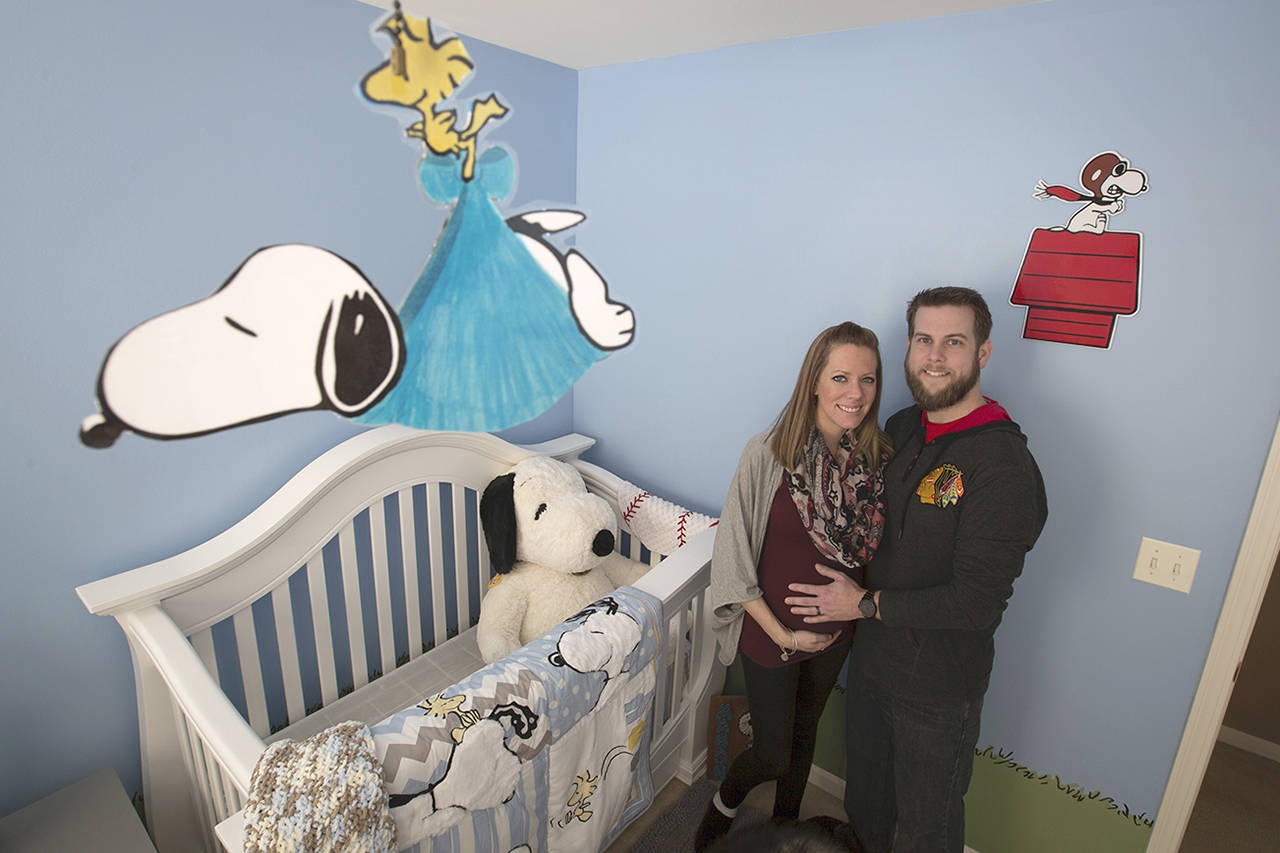By Alison Bowen
Chicago Tribune
When Chris Lynd encountered health issues after serving in the military, he thought his benefits from the Department of Veterans Affairs would cover his medical treatments. So he and his wife, Caitlyn, were surprised when those benefits didn’t extend to infertility issues.
Many veterans are returning from war in hopes of starting a family, only to find obstacles. War injuries can cause problems with conceiving. Veterans also face problems because some have spent most of their fertile years serving the country.
“That’s one of the greatest injustices of the U.S. military, is that we create infertility and then we don’t treat those patients,” said Dr. Eve Feinberg, medical director of Northwestern Medicine Fertility and Reproductive Medicine in Highland Park, Illinois. Before coming to Chicago, Feinberg trained at the National Institutes for Health, helping to run an in vitro fertilization program for the U.S. military.
Although it’s unclear whether Lynd’s infertility was directly related to his service, the couple felt his benefits should cover medical treatments involving infertility.
In September 2016, Congress passed a bill that allows the VA to cover reproductive services, including IVF, for veterans with combat-related injuries. Nonprofits are helping too; Feinberg founded the Kevin J. Lederer Life Foundation , which gives one grant to a military couple each year.
Previously, according to the office of U.S. Rep. Rick Larsen, D-Wash., who helped push the bill, veterans were covered for a fertility assessment but not IVF, which can cost more than $12,000.
In the Chicago area, military families have been going to doctors for help.
Dr. Allison Rodgers, of the Fertility Centers of Illinois, said she’s seen about 75 military members in the past three years.
With one recent patient, the husband was about to leave for a one-year Navy deployment. The wife was hoping to plan the birth around his deployment, Rodgers said. For active members, planning pregnancies around separations can be difficult.
Last year, Northwestern opened the reproductive clinic in Highland Park. There, Feinberg said, doctors see many patients from the nearby Naval Station Great Lakes.
The main issue, she said, is that military members are often deployed in their 20s and early 30s.
“Age is probably the most important factor that comes into play with the ability to conceive,” Feinberg said.
To combat these obstacles, doctors can freeze sperm, eggs or embryos that patients can use when they return.
Some suffer injuries from explosions. At Walter Reed Army, Feinberg saw men with injuries that damaged their testes or penis. Amputations, also, can create challenges.
“Losing a limb can make intercourse challenging,” she added. “Lots of different physical injuries can make the normal mechanics of conception challenging.”
For women, a brain injury can alter the menstrual cycle and her ability to ovulate.
And it’s not just physical stressors.
Post-traumatic stress, which the VA estimates about 11 to 20 percent of Iraq veterans experience, can impair erectile function.
Even typical stress can impact fertility. That’s exacerbated for military families.
“They feel like they have to hurry up and get pregnant, so their husbands don’t miss their deliveries,” Rodgers said. “It’s a big extra stress on the patient.”
Chris Lynd joined the Marines in 2002. Four years later, he said, after returning from Iraq, medical tests found Crohn’s disease, and he was medically retired.
When the Lynds married in 2013, they knew they wanted a family. Early the next year, they started trying.
“By 2015, we were like, ‘OK, there’s a problem,” said Chris, 32, a quality manager for Aon. Tests found that Caitlyn had a form of polycystic ovarian syndrome, which caused irregular ovulation, and Chris had a low sperm count.
The VA covered the medical visits to diagnose that, they said, but didn’t cover treatments.
At the Fertility Centers of Illinois, they met with Rodgers. Unbeknownst to all, it turned out Caitlyn, 27, a lead bank teller for Wintrust in their town of McHenry, Illinois, was already pregnant. They were thrilled, then crushed when she miscarried.
She said she remembers thinking, “It took us almost two years to get to this unfortunate failure. Is it worth trying again?”
They returned to FCI. At that visit, she remembered, “I cried in her office after having sticker shock.” The couple couldn’t afford a $20,000 in vitro fertility treatment.
Like many military families, they also felt a ticking clock.
“I felt like we had to do it now or never,” she said.
Ultimately, a clinical trial with an egg-stimulating drug was a fit — and far less expensive. Still, the couple said even with help from FCI, which allowed them to enter the clinical trial and discounted their cost, they estimate the drugs, procedures and embryo storage cost about $10,000.
They welcomed son Mason in March.


